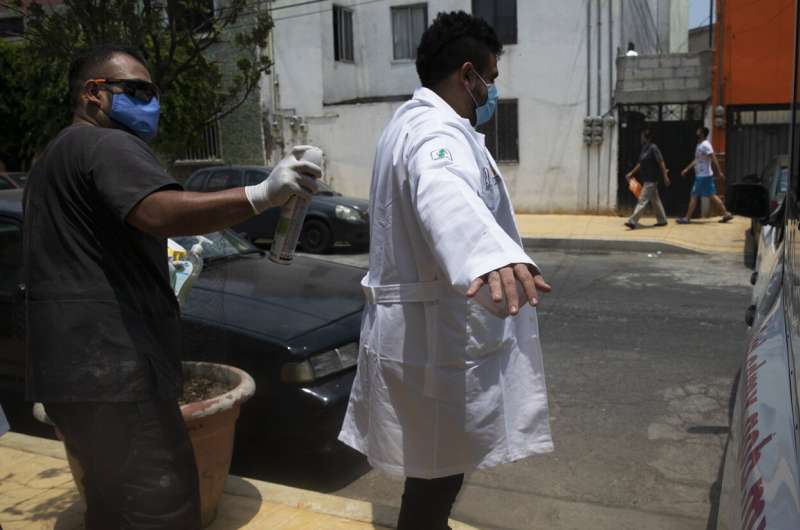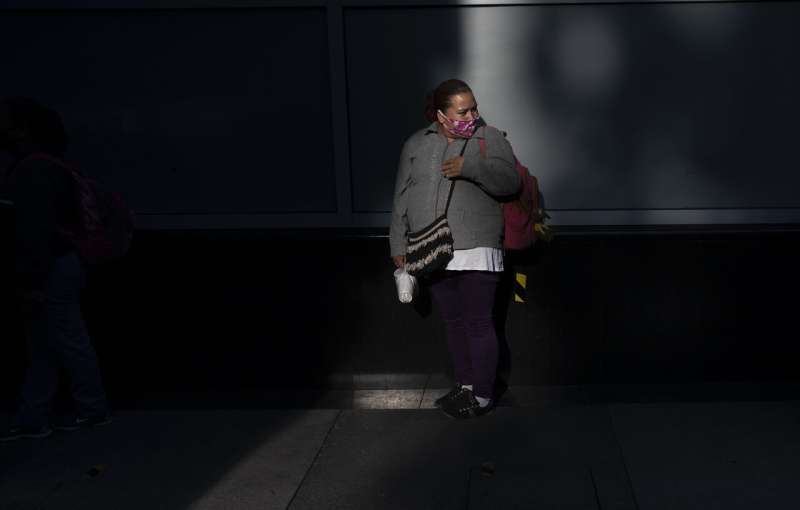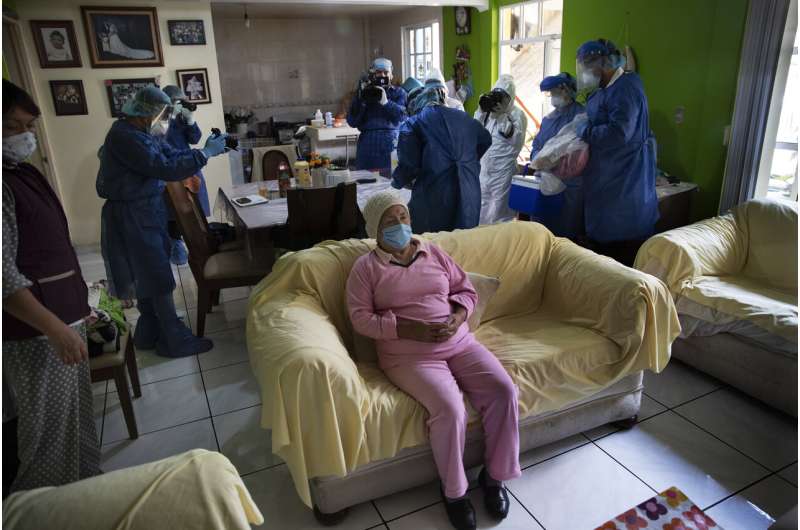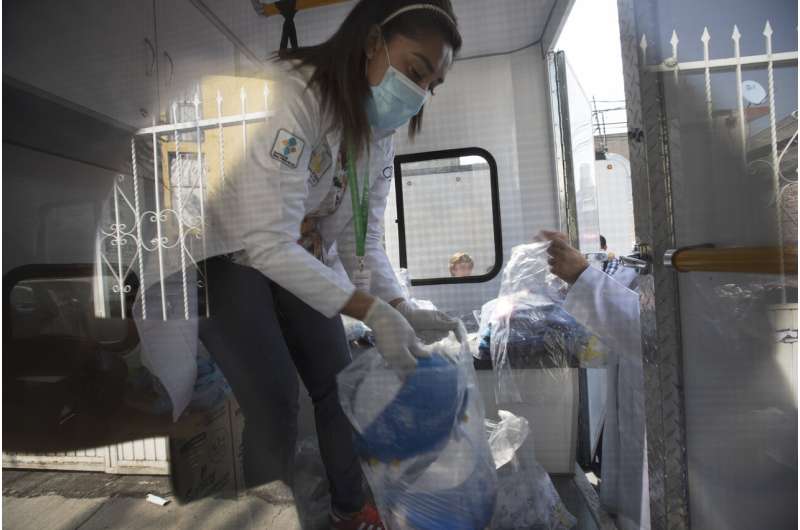A health worker disinfects a fellow colleague after outside the home of a 75-year-old resident who they tested for COVID-19, in Mexico City, Wednesday, June 17, 2020. (AP Photo/Marco Ugarte)
Mexico's coronavirus cases continued to increase at near-record levels Wednesday, as officials acknowledged the country is on a plateau with few signs of decrease, even as the economy starts reopening.
The Health Department reported that confirmed cases rose by 4,930, the second-highest daily increase to date, to reach an accumulated total of 159,793.
Deaths rose by 770, the third-highest daily number, after one-day increases of 1,092 and 816 earlier this month. Those death tolls rivaled those of the United States. Mexico's overall death toll now stands at 19,080.
Both case and death totals are clearly undercounts because Mexico does very little testing. Moreover, reporting has been slow and faulty.
The Mexican Social Security Institute, the nation's largest health care provider, said Wednesday that 957 confirmed COVID-19 deaths had not been added to official counts because the information had not been typed into computer systems. Mexico's official toll will probably also rise when deaths at home, or deaths where no test were performed, are added.
Health officials acknowledged Mexico is on a plateau, with sustained rates of transmission and deaths, with few if any signs of a decrease. Despite that, business are beginning to reopen after mandatory lockdowns due to the coronavirus.
-
A woman wearing a mask to curb the spread of the new coronavirus stands in front of a building on Paseo de la Reforma in Mexico City, Wednesday, June 17, 2020. (AP Photo/Marco Ugarte)
-
Rebeca Jimenez, 75, sits on a sofa in her home as journalists record health workers preparing to test her for COVID-19, in Mexico City, Wednesday, June 17, 2020. (AP Photo/Marco Ugarte)
-
Health workers ready to enter the home of 75-year-old Rebeca Jimenez to test her for COVID-19, in Mexico City, Wednesday, June 17, 2020. (AP Photo/Marco Ugarte)
Assistant Health Secretary Hugo López-Gatell said the numbers indicate a "progressive tendency of prolonging the epidemic ... longer than originally predicted."
López-Gatell had originally predicted a peak in the epidemic in May, but the latest figures show a peak in early June. However, because of delays in testing and reporting—and the large number of suspected coronavirus deaths and cases that may later be confirmed—it is unclear when the peak occurred or it if is still to come.
He also predicted the first wave of the epidemic may not go into definitive decline until September or October, especially in some states are just starting to be hit hard.
© 2020 The Associated Press. All rights reserved. This material may not be published, broadcast, rewritten or redistributed without permission.



























